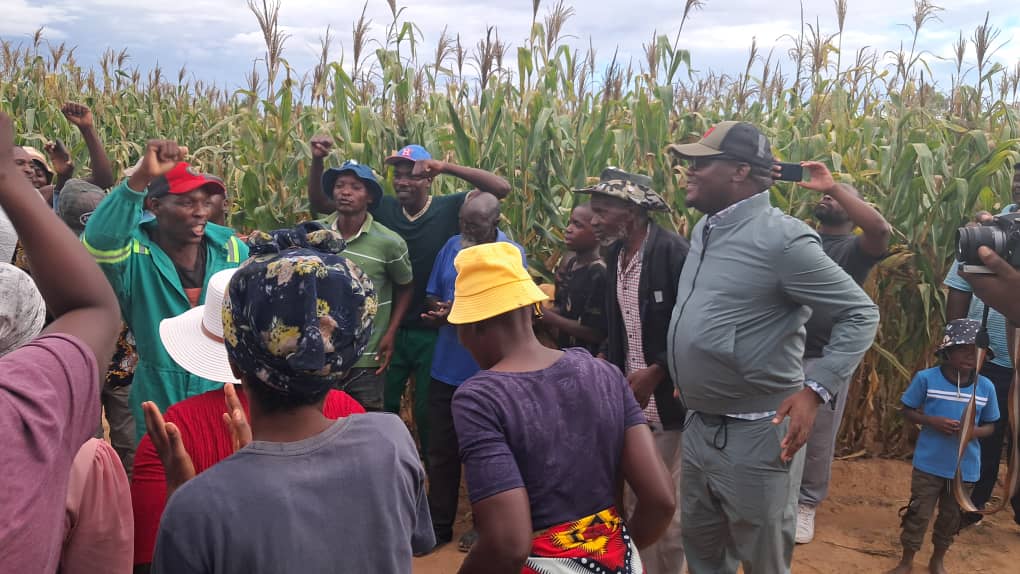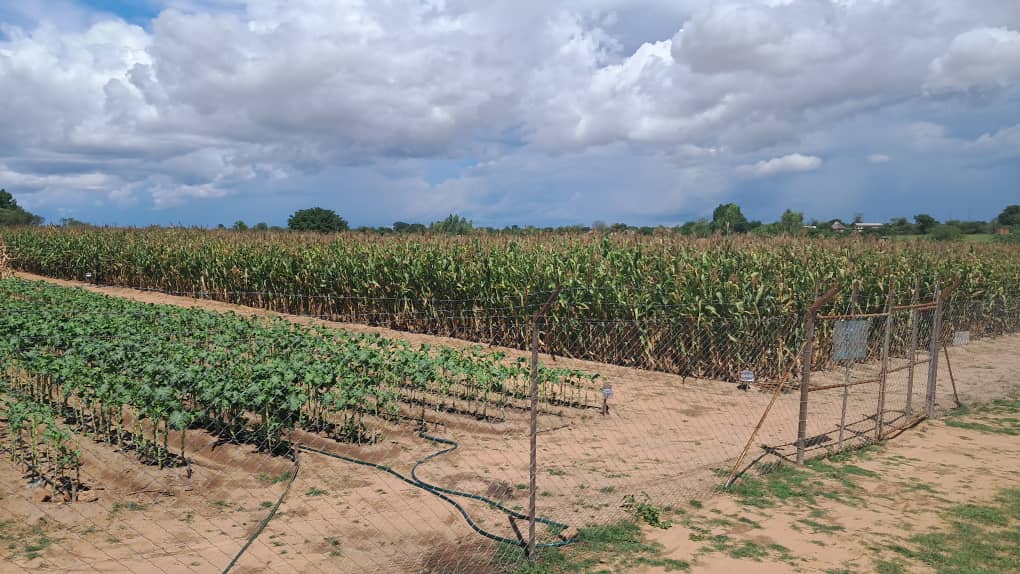Davhe Village, Buhera, Zimbabwe | In the drought-prone region of Buhera, where communities have long struggled with erratic rainfall and barren fields, the Davhe Village Business Unit (VBU) has become a symbol of transformation and hope.
Defying the challenges of its arid environment, the Davhe VBU recently achieved a remarkable milestone: producing 10 tonnes of maize through the Presidential Borehole Scheme (PBS).
The PBS, introduced under the leadership of President Emmerson Mnangagwa, seeks to revolutionize agriculture in Zimbabwe’s driest regions by ensuring reliable water supplies through borehole installations. This initiative has paved the way for numerous Village Business Units nationwide, with Davhe emerging as a shining example of its potential to address food insecurity.
In Davhe, the borehole is more than just a source of water—it has become the backbone of a localized agricultural revolution. The VBU has embraced modern farming practices, such as crop rotation, to boost productivity. Today, crops like maize, tomatoes, cabbages, and other vegetables grow in abundance throughout the year in a place where such yields were once unimaginable.
This year, the unit reached a significant achievement: selling all 10 tonnes of maize to Prevail Group International (PGI) for an impressive US$4,000.
PGI, a crucial partner in the PBS, plays a pivotal role by connecting farmers to markets and fostering sustainable livelihoods.
Read: Mpilo Central Hospital Launches Zimbabwe’s First Diploma in Accident and Emergency Management

Davhe villagers celebrate with joy after receiving rewards for their successful farming projects under the Presidential Borehole Scheme, marking a milestone in their journey towards food security and financial independence
Commenting on the program’s impact, PGI Chairperson Paul Tungwarara commended the initiative, stating, “The PBS, led by President Mnangagwa, has transformed the agricultural landscape in Buhera. Communities in drought-prone areas are now achieving surplus harvests, enhancing food security, and improving their quality of life.”
The success is evident in the numbers: over 86 small-scale farmers benefited directly from this year’s maize harvest. For many, the PBS has been nothing short of life-changing.
Maria Nyamunda, a mother of three, shared how the initiative has improved her life. “Before the VBU, we relied on unpredictable rains, and most of our crops failed,” Nyamunda explained. “Thanks to the borehole and the support of the VBU, I can now farm all year round. With the money from the maize harvest, I’m able to send my children to school and buy groceries for my family.”
Similarly, Tatenda Mhiripiri, another beneficiary, highlighted how the program has empowered women in the community. “This initiative has given women like me financial independence,” Mhiripiri said. “I no longer have to worry about feeding my family, and I’ve even started a small poultry business with the income from the VBU.”
The achievements of the Davhe VBU underscore the transformative potential of the PBS. The initiative offers a replicable model for other drought-affected areas, bridging the gap between challenges and opportunities.
As projects like Davhe continue to flourish, Zimbabwe edges closer to addressing food insecurity and poverty in its most vulnerable communities. For farmers in Buhera and beyond, initiatives like the PBS are turning arid lands into productive fields, bringing renewed hope and opportunity.
With sustained innovation and support, the Presidential Borehole Scheme could redefine Zimbabwe’s agricultural future, proving that even in the harshest conditions, prosperity is within reach.
For comments, Feedback and Opinions do get in touch with our editor on WhatsApp: +44 7949 297606.

For comments, Feedback and Opinions do get in touch with our editor on WhatsApp: +44 7949 297606.
